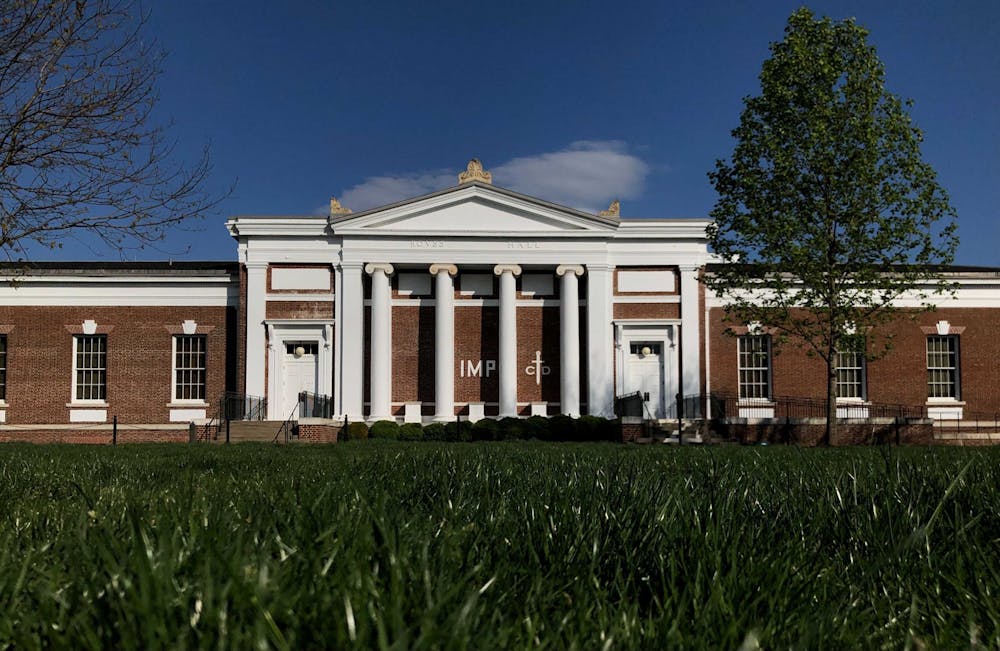As spring break approaches and exams, essays and projects loom over students’ heads every February and March, there is more than just the regular amount of academic stress. Apart from the normal worry about studying, grades, finding internships and planning for the future, many University students worry about even having the opportunity to study what they love. With the Batten School of Leadership and Public Policy and McIntire School of Commerce releasing acceptance decisions around this time, students feel more than ever that their futures are at stake. This fear of securing one’s academic future feels out of place at a university that emphasizes the ideals of academic exploration and excellence so strongly.
The fact that there are supposed alternate options — for example, studying Economics as opposed to Commerce, or studying Government as opposed to Public Policy and Leadership — does little to remedy the exclusivity of application-based majors. The descriptions of the major programs of study themselves reveal the striking differences between the academic fields — the Economics program is “the study of how people make choices and hope markets work” while the Commerce program is self-described as focusing on “applied learning, solving real-world business problems and finding fresh perspectives.” These programs clearly have different aims, employ different strategies and focus on different value sets — they are not interchangeable. Therefore, there is no real equivalent for a student who has been rejected from the more selective Commerce program, and the same goes for the Public Policy and Leadership Program.
The selectivity of these programs seems to go directly against the University’s self-stated mission, which expresses a vision of developing the potential of “talented students from all walks of life.” In the University’s own words, they want to allow students of all backgrounds to be able to reach their full potential. The mission statement also goes on to express the University’s dedication to “the free and collegial exchange of ideas.” Despite this, selective programs are the very opposite of free and inclusive. A recent column by Opinion Columnist Alexandra Shevloff highlights the tension between the University’s intended aims for free academic exploration and the academic structure that prohibits passion-based learning. I agree completely and also argue that it is the selective majors specifically that perpetuate the need to stray from one’s passions to achieve academic excellence.
However, if the University is going to emphasize the “free and collegial exchange of ideas,” there need to be alternative options that actually allow all students to study in their areas of interest. Currently, the application process bases admission on grades and successes in a student’s first three semesters of college — during which students must also balance the radical adjustment to college life. Even more so, this transition period can be especially challenging for first-generation and transfer students. The current application process does not take into account that many applicants are still academically growing. Any academic bump — even if it is caused by life problems and college adjustments — looks negative on an application. For instance, the Batten School’s application addendum allows a place to explain academic bumps — course withdrawals, gaps in one’s academic record, light course loads — but they still negatively impact one’s chances.
Moreover, in order to be admitted to the University through a highly competitive process, students have to work to balance a challenging academic course load with commitment to extracurriculars, sports, jobs and family life throughout high school and even then are sometimes rejected. Once accepted, students are forced to remain under incredible academic stress if interested in applying to a selective major. Because students are often so concentrated on applying to such majors in their first two years at the University, they hesitate to expand their academic horizons or to experiment in other areas of study for fear of getting a grade that will negatively impact their GPA. The focus on grades deters students from pursuing that “free and collegial exchange of ideas” the University’s mission statement so highly promotes. One cannot feel “free” to explore when their ability to study what may be their true passion is contingent upon numerical metrics instead of drive and exploration. Thus, are application-based majors not restricting the free exchange of ideas and prohibiting the students who aren’t accepted from reaching their full potential?
If we are going to have such exclusive programs, the students who aren’t accepted should have a supportive and attainable backup plan that allows them to explore their desired fields and achieve their goals. Students should be able to explore academically without their success being contingent upon an admissions process that at times seems arbitrary and subjective. In practice, Batten, Commerce and many other application-based programs at the University perpetuate a culture of exclusivity and elitism. While they are wonderful programs, their selectivity prohibits many students from intellectually thriving from their programming. The students that are accepted into these selective programs are worthy of their positions — but who’s to say that those students who are not selected are not just as passionate and driven? To uphold the University’s mission statement of academic exploration, free exchange of ideas and allowing students to reach their fullest potential, the University must create space for academic bumps in their admissions processes for these selective majors, and should also ensure the creation of similar programs for students who ultimately aren’t accepted.
Hailey Robbins is an Opinion Writer for The Cavalier Daily. She can be reached at opinion@cavalierdaily.com.
The opinions expressed in this column are not necessarily those of The Cavalier Daily. Columns represent the views of the authors alone.







